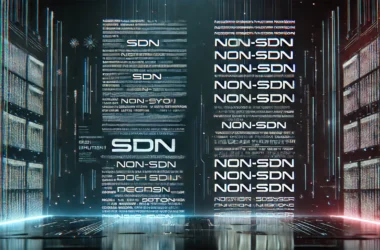Table of Contents Show
Be Verified Editorial Team · 7 May 2025
Why KYC Automation Matters Now
Generative‑AI–powered deepfakes have sharply lowered the barrier to fraud, with global identity‑fraud losses forecast to reach US $40 billion by 2027. Regulatory expectations have risen just as fast, yet only 17 % of commercial banks say they use fully automated workflows for KYC and credit decisioning. The result is a compliance squeeze that manual processes can no longer absorb.
Trendwatch — Five Forces Reshaping KYC in 2025
| Trend | What It Means for Banks |
|---|---|
| Perpetual KYC (pKYC) | Real‑time refresh of customer risk profiles replaces periodic reviews, reducing remediation spikes and exposure windows. |
| AI‑Driven Fraud & Deepfake Defense | Computer‑vision and voice‑analytics models detect presentation attacks that human reviewers miss, cutting abandonment while keeping false positives low. |
| Decentralized & Re‑usable Digital Identity | Verifiable credentials let customers port KYC data across institutions, slashing onboarding effort and break‑off rates. |
| End‑to‑End CLM Integration | Merging onboarding, screening, risk scoring and case management on a single platform delivers a 360‑degree view and audit trail. |
| Cloud‑Native, API‑First Architectures | Micro‑services and low‑code orchestration accelerate rule changes and enable elastic scale during onboarding spikes. |
Implementation Checklist
- Data Foundations: Consolidate internal and external data sources; poor data quality is the #1 reason pKYC pilots stall.
- Risk‑Based Orchestration: Configure dynamic paths that match customer risk levels to cost‑effective controls.
- Model Governance & Explainability: ML‑based scoring must be transparent enough for regulators and internal audit.
- Vendor Ecosystem: Prioritise solutions with open APIs and packaged connectors to screening, transaction‑monitoring and CRM stacks.
- ROI Tracking: Measure onboarding abandonment, review cycle time, SAR productivity and fine avoidance to quantify payback.
From Compliance Cost to Strategic Asset
Banks that industrialise KYC automation report up to a 40 % reduction in onboarding time and materially lower false‑positive queues, freeing analysts to focus on genuinely suspicious activity. When KYC data is consistently structured, it also feeds better credit‑decision and cross‑sell models, turning a regulatory obligation into an insights engine.
Top 3 KYC Automation Providers for Banks (2025 Edition)
| Provider | Key Strengths for Banks | Recent Analyst Recognition |
|---|---|---|
| Fenergo | End‑to‑end client‑lifecycle‑management (CLM) suite with pKYC modules, extensive rules library and ISO 20022‑ready APIs. | Category Leader — Chartis RiskTech Quadrant® 2025 for CLM Solutions. |
| NICE Actimize | AI‑based entity resolution, risk scoring and real‑time screening; proven scalability across Tier‑1 retail and corporate banks. | Four‑star rating, Chartis KYC Data & Solutions 2024; Best KYC & Client Onboarding Solution — A‑Team USA Awards 2024. |
| SAS Anti‑Money Laundering | Advanced ML detection, configurable scenarios and strong model‑risk governance; integrates with SAS Viya analytics cloud. | Leader — Forrester Wave™ Anti‑Money‑Laundering Solutions Q2 2025. |
How We Selected Our Top 3
Our editorial team reviewed 2024‑2025 analyst reports from Chartis, Forrester and Gartner alongside publicly available proof‑points such as customer deployments, product roadmaps and regulatory audit outcomes. We focused on solutions with:
- Significant bank market share (mid‑tier to global).
- Demonstrated support for pKYC and AI‑assisted risk scoring.
- Open integration frameworks and cloud deployability.
- Transparent pricing and documented ROI.
Looking Ahead
Perpetual, API‑driven and identity‑portable KYC is shifting compliance from a periodic obligation to an always‑on capability. Early adopters already view KYC data as a competitive differentiator—fuel for personalisation, risk analytics and faster growth. Banks that delay modernisation risk higher fraud exposure, regulatory fines and customer attrition. The window for catch‑up is closing.
Have thoughts or feedback on this overview? Let us know so we can keep our coverage sharp and useful.




